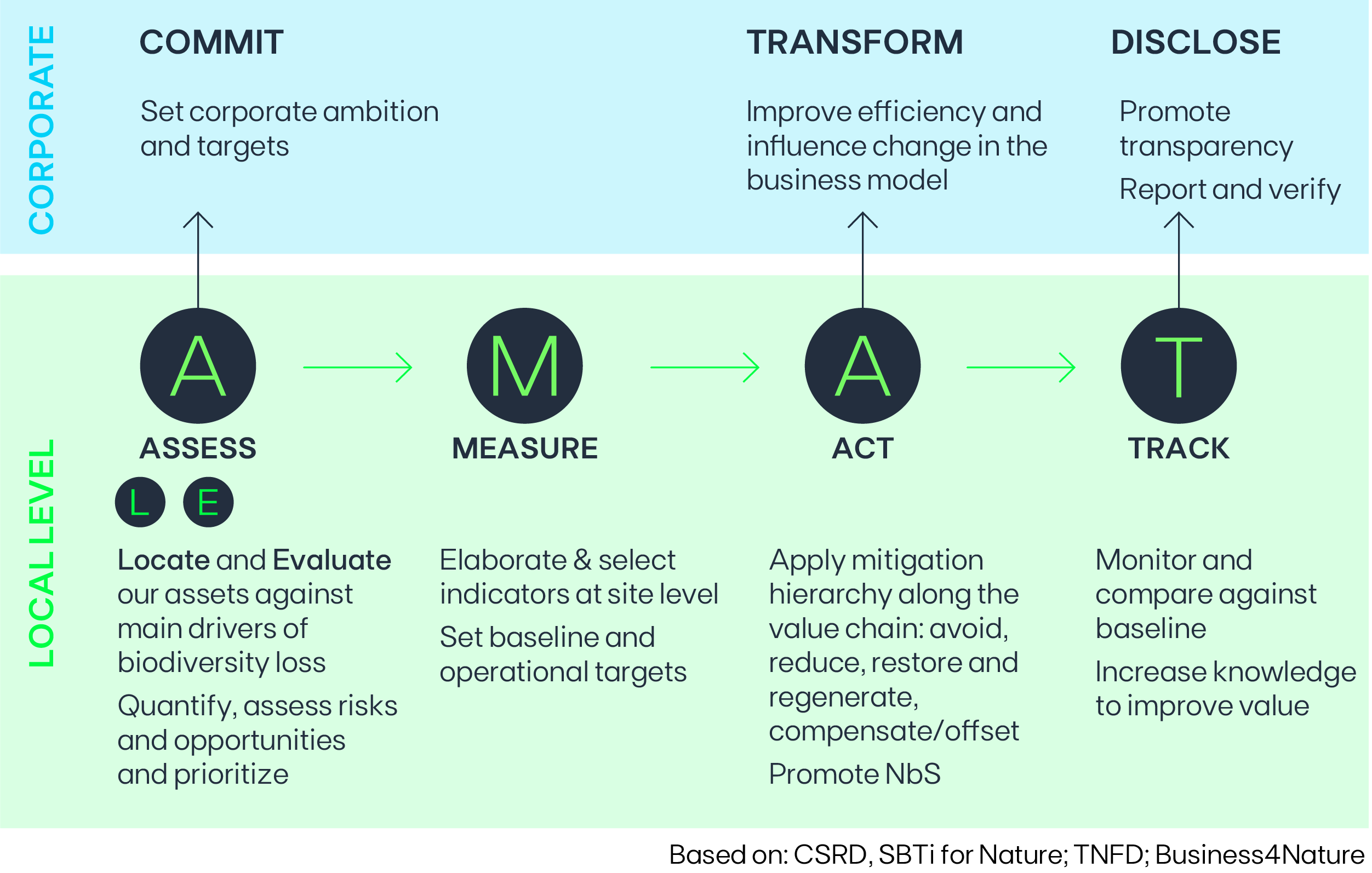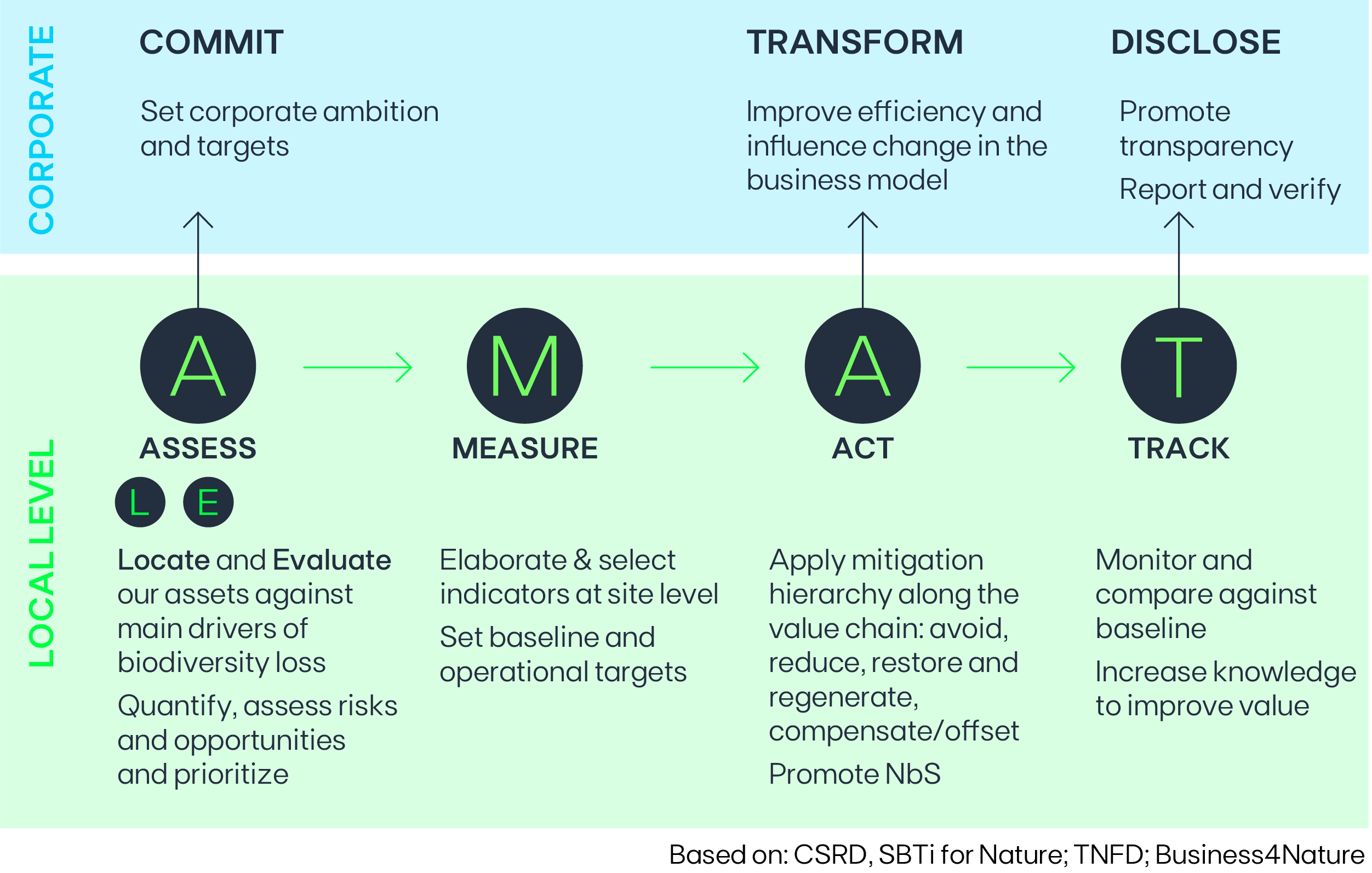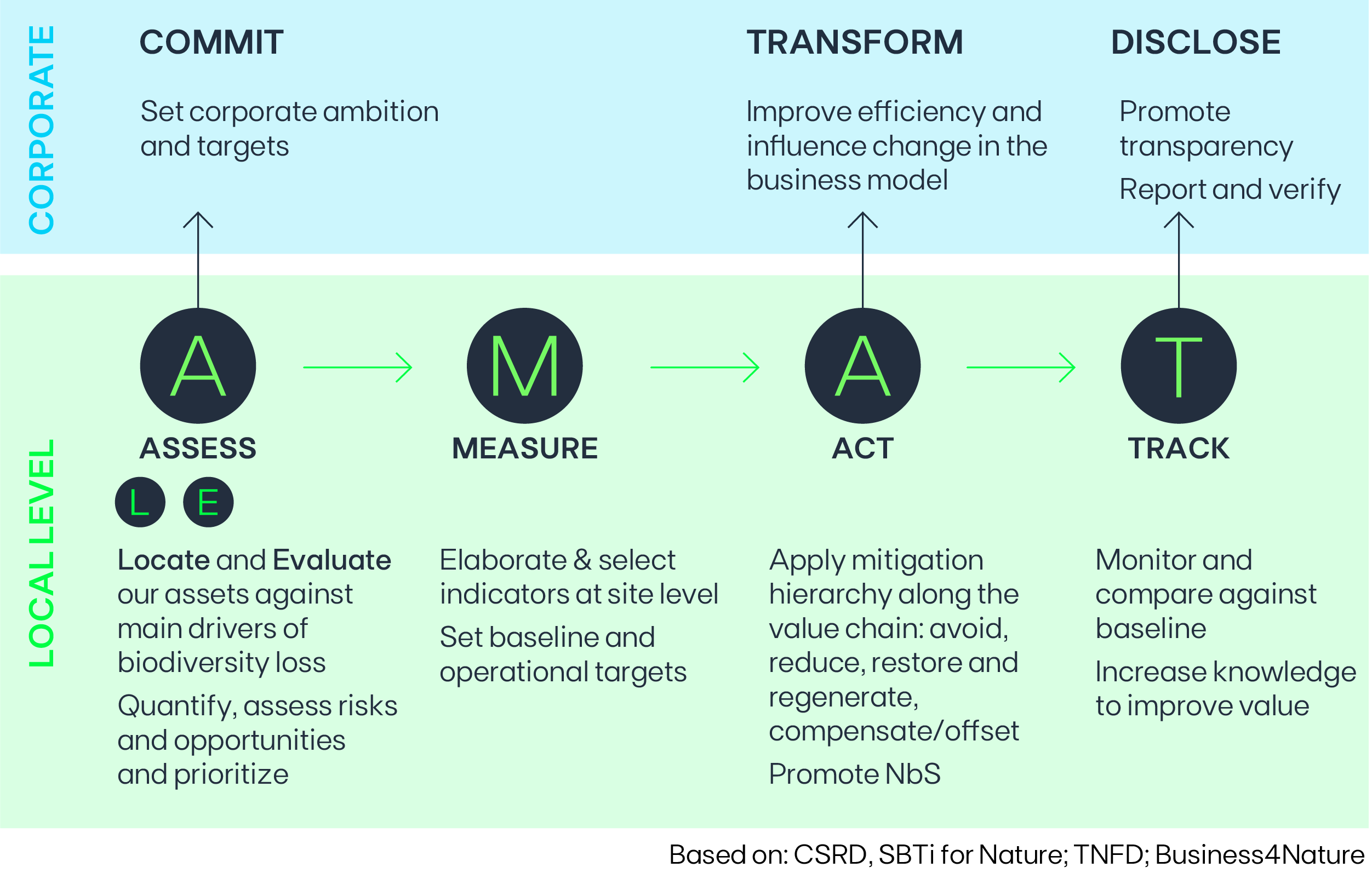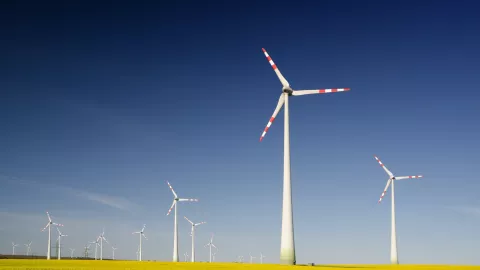Contributing to
a regenerative world
We are aware of the importance of our activities as a factor in the development and improvement of the population's quality of life. Therefore, we actively contribute to the preservation of the Environment and Natural Resources and to the Sustainable Development of Societies.
Mitigation of environmental impacts, part of EDP's Environmental Policy, is ensured by our environmental management systems certified in accordance with ISO 14001:2015, aligned with a Corporate Environmental Management System (SIGAC), applicable to the “corporate management of policies, the commitments assumed and the environmental performance of the EDP Group worldwide”, certified since 2008, by Lloyd's Register Quality Assurance(certificate no. ISO 14001 – 0030519).
Promoting a positive impact of nature in the development of our activities




Let's decarbonise and lead the energy transition.
We will do so by empowering Communities and rebuilding our Planet in collaboration with our Partners for faster transformation, driven by a strong ESG Culture on the path to long-term value creation.
(1) To achieve carbon neutrality, residual emissions will be offset by 2030.
Sustainability
A commitment to the future
A greener, fairer and safer world starts with solid commitments from those who have the ambition to lead the energy transition.

Sustainable development goals




No time to waste
The planet is getting warmer. If nothing is done to combat climate change, by 2100, the global average temperature could rise by 4ºC. This is why the Paris Agreement established such ambitious and global goals: “to keep the global average temperature rise well below 2 °C compared to pre-industrial levels and to continue making efforts to limit the temperature rise to 1,5 °C above pre-industrial levels”.
To achieve these goals, it is necessary to increase the current rate of decarbonization of the world economy by approximately five times, and the electricity sector will play a fundamental role in this transition, through the use of renewable energies and the promotion of electrification, in particular in transport, buildings and industry. That is why, in our Business Plan 2023-2026, we have restated the commitment to be coal free by 2025 and to have 100% renewables generation by 2030, with a Net Zero emissions target by 2040 (SBTi approved). We want to lead the energy transition because we choose earth.
Our strategy
Our contribution to fight against climate change is achieved through our Climate Action approach, which focuses on two pillars:
These actions are supported throughout the company by innovation - which aims to promote the development of carbon-neutral technologies and increase energy efficiency; and by training to increase awareness and transparency on climate change, both within and outside the EDP group.
The importance of mitigation
To combat climate change, it is essential to mitigate our action on the planet.
Mitigation is, mainly, at two levels: generation and consumption. On one hand, we increasingly invest in renewable generation technology, focusing on wind and solar energy, and reducing CO2 emissions with the aim of becoming net zero by 2040. On the other hand, we promote sustainable services, electric mobility, energy efficiency, digitalisation and decentralised production of renewable energy, with a view to electrifying consumption.
In addition to the initiatives to reduce the carbon footprint on the supply side, EDP plays a very active role with its customers and the community in general, promoting the improvement of energy efficiency in end use and the consequent reduction of GHG emissions.
Addressed to the liberalized market, EDP provides a set of solutions to meet the specific requirements of the different customer segments, through a diversified offer of competitive and sustainable products and services, that avoid emissions in the end consumption of energy.
More detailed information on the products and services provided by the various EDP Group business units can be found in the Integrated Annual Report 2023, as well as in the document “DSM and Energy Efficiency Initiatives 2023”.
Our emission reduction targets




Adapting to combat climate change
We need to adapt to climate change and this is a major priority for us.
It aims to improve the resilience of EDP's infrastructure to climate change. Climate change has become a reality and its effects are already being felt all over the world. For this reason, we are assessing the level of exposure of EDP's infrastructures to physical climate risks, considering short, medium and long-term IPPC scenarios reduced when possible to regionalized scenarios.
Business Units Adaptation Plans
They consist in ensuring the resilience of the electricity distribution generation in relation to physical risks. EDP is developing adaptation plans for its business units.
What are we doing today to adapt
At EDP, we have defined a clear commitment: to have adaptation plans implemented in our business units by 2025. For this, we make an assessment of the physical risks and their potential impacts on business, in alignment with the recommendations of the TCFD (Task Force on Climate-Related Financial Disclosures)
Podcast “Now or Never”
Ep. 1 -Climate Change
What is Climate Change? How do they influence the way we live? How can we protect the planet from a generalised rise in temperature? Catarina Barreiros, Júlia Seixas and Sara Goulartt look for the answers in this episode of the podcast It's Now or Never.

Sustainable development goals




Circular Economy for a Regenerative Business
An efficient management of natural resources demands a change in the economic model in which we live. The circular economy emerges as a bet on the general reduction in the consumption of natural resources and represents an opportunity for the development of new businesses. For us, circular economy is the right way forward, and at EDP we are implementing this vision in all our business units. In order to do that, we approved the Circular Economy Strategy for the EDP Group, which integrates






At EDP, we intend to continue to grow through a business model adapted to the challenges of sustainable development. For this reason, the EDP Group’s Sustainability Strategy establishes 12 goals to drive sust ainability.
Achieving a positive impact on society requires a thorough attention to the environmental impacts that continue to exist. Climate is being addressed mainly by the transformation of EDP’s business portfolio, where adaptation is also key to improve company’s resilience. Focus is now on integrating the principles of natural capital preservation and circular economy into decision - making processes in each stage of the value chain.
Circular economy objectives for 2025



Podcast “Now or Never”
Ep. 2 - Circular Economy
Circular Economy is the theme highlighted in the second episode of the podcast EDP, It's Now or Never. How can we change our consumption habits in order to protect the planet? Is plastic the number one enemy to eliminate? And what are the 5 R's of Circular Economy? Catarina Barreiros, Paulo Ferrão and Ana Júlia Pinto give the answers.

Natural Resources

Water

Wastewater
Sustainable development goals




Promote a nature positive impact
The current economic growth model is mainly responsible for the accelerated loss of biodiversity that has been observed. The loss of biodiversity and the collapse of ecosystems are among the main threats that humanity will face in the next decade. Scientists estimate that species loss rates are already 1,000 to 10,000 times higher than normal rates, with one million animals and plants species under threat, and that 60% of ecosystem services provided to humans are degraded or used in an unsustainable manner.
We are aware, assess, and consider our dependencies and impacts and the species potentially affected (see list and assessment) due to our activities. Thus, we foresee a mitigation hierarchy with measures to avoid and minimise the impact and to restore and compensate when it occurs, in the different countries where we are present.
Our strategy



EDP initiative
Space4Nature
With this initiative, which is in its start-up phase, we intend to promote Nature-Based Solutions (SbN) capable of solving business problems, and at the same time promoting, and protecting biodiversity, and the climate, generating social, and environmental co-benefits at the local level where they are in force.We will map, typify and characterise the benefits of each SbN, divulge best practices and promote pilot demonstrations in EDP assets.

Our commitments
We want to promote dynamic, comprehensive, long-term management, thinking about and aiming for an overall positive balance. To contribute to furthering scientific knowledge.
Protect UNESCO's natural heritage
Implementation roadmap
Collaborating to protect biodiversity
We will promote ecosystems regeneration, leveraging land use synergies and nature-based solutions to better address biodiversity protection and a nature positive impact.
Discover some of our projects:
Mitigating and compensating for impacts on biodiversity

IUCN Guide

act4nature-Portugal
Other projects:
Other impacts related to biodiversity
Podcast “It's now or never”
Ep.7 - Biodiversity
What is biodiversity? What are the main threats on biodiversity? And what does this theme imply for the future of human beings and planet Earth? Catarina Barreiros, Pedro Beja and Vítor Batista answer these and many other questions about biodiversity in another episode of the EDP podcast, It's Now or Never.

Biodiversity Report
Biodiversity is under threat and it has never been more urgent to restore damaged ecosystems than now. Therefore, protecting the planet by contributing to its regeneration and a positive nature in 2030 shapes EDP's ambition in its relationship with nature and the importance of its preservation. Learn about the work carried out by EDP in the Biodiversity Report 2020-2022 and the performance of our commitments in the area.











